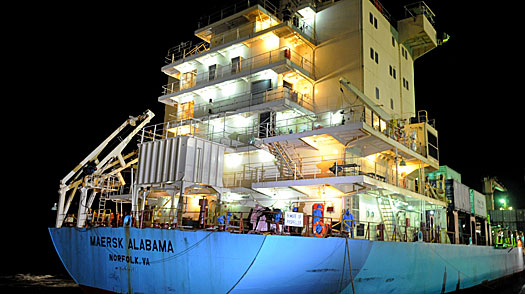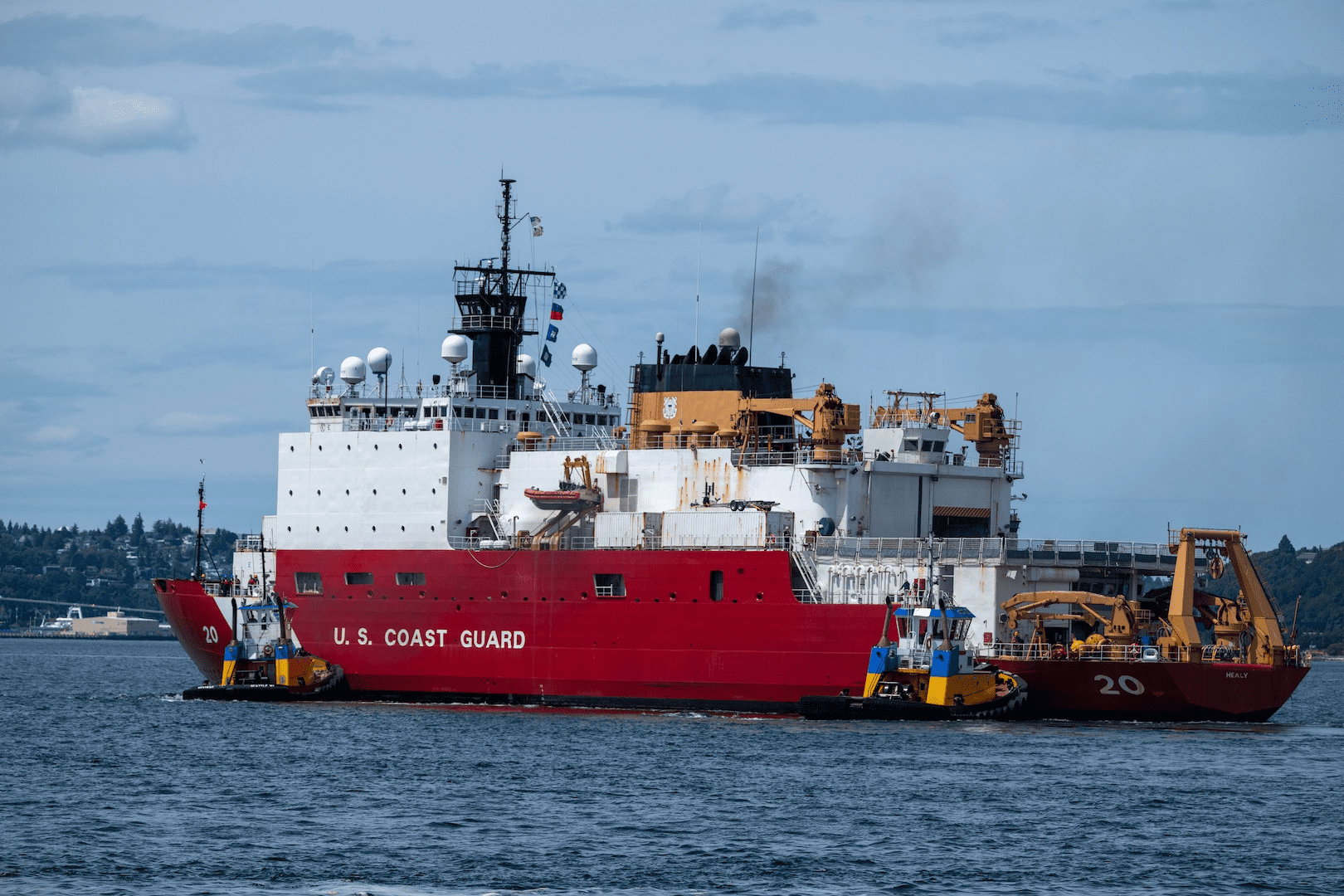
In response to the uprise in piracy and recent attacks on U.S. flagged vessels, the USCG has issued the Maritime Security Directive 104-6 (rev. 2) issued under the Maritime Transportation Security Act of 2004. The revised Maritime Security Directive was signed on Monday by Coast Guard Commandant Thad Allen and according to a press release from the USCG:
Maritime Security Directive 104-6 (rev. 2) issued by the Coast Guard under the Maritime Transportation Security Act of 2004 provides the maritime industry with specific, risk-based measures to take to deter, detect or disrupt piracy. Prior to entering high risk waters, U.S. flagged vessels should establish an anti-piracy plan that includes the hardening of rigging and operating vessels in a manner to prevent attacks and subsequent boarding. Ships shall also use established transit lanes, erratic ships maneuvering, increased speed and cooperation with military forces patrolling the area. During transits through high-risk areas, it is the ship’s responsibility to maintain a vigilant anti-piracy watch and ensure all shipboard anti-piracy precautions are in force.
Additionally, ship owners of U.S. flagged vessels are required to submit security plans for approval by May 25 for vessels that operate in high risk waters and these vessels must have security protocols for terrorism, piracy, and armed robbery against ships that meet the performance standards in this directive.
Coast Guard Rear Admiral James Watson told shipping industry representatives at a maritime security meeting in Fort Lauderdale, Florida that the directive will also allow ship owners to decide whether to use armed or unarmed guards and that the State Department was working with countries in pirate-plagued regions to learn what weapons laws apply in their ports in order to clarify the issue for U.S. mariners. Watson also said the new directive would not be publicly released in its entirety because it contained sensitive security information. (source: Reuters)

 Join The Club
Join The Club











